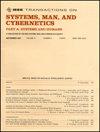基于rbfnn的执行器故障及速度约束地铁列车自适应迭代学习容错控制
IEEE Transactions on Systems Man and Cybernetics Part A-Systems and Humans
Pub Date : 2021-09-01
DOI:10.1109/TSMC.2019.2957299
引用次数: 16
摘要
本文采用多点质量动力学模型,针对地铁列车执行器故障与速度约束随时间迭代变化的特点,提出了一种基于径向基函数神经网络的自适应迭代学习容错控制算法。首先,利用RBFNN逼近地铁列车系统随时间迭代的未知非线性;然后,采用迭代学习机制解决地铁列车在有限的时间间隔内每天严格按照运行时刻表从一站到下一站的突出重复运行模式,并设计自适应机制处理地铁列车的时间和迭代变化因素。其次,利用势垒复合能量函数技术得到了所提出的地铁列车系统RBFNN-AILFTC方案的收敛性,该方案可以保证跟踪误差沿迭代轴渐近收敛,同时保持地铁列车系统的速度轮廓满足约束;最后,通过地铁列车仿真验证了理论研究的有效性。本文章由计算机程序翻译,如有差异,请以英文原文为准。
RBFNN-Based Adaptive Iterative Learning Fault-Tolerant Control for Subway Trains With Actuator Faults and Speed Constraint
In this article, a radial basis function neural network-based adaptive iterative learning fault-tolerant control (RBFNN-AILFTC) algorithm is developed for subway trains subject to the time-iteration-dependent actuator faults and speed constraint by using the multiple-point-mass dynamic model. First, the RBFNN is utilized to approximate the time-iteration-dependent unknown nonlinearity of the subway train system; then, the iterative learning mechanism is used to tackle the outstanding repetitive operational pattern of a subway train which runs from one station to the next strictly according to the operation timetable schedule every day within the finite time interval, and the adaptive mechanism is designed for dealing with the time and the iteration-varying factors of the subway train. Second, a barrier composite energy function technique is exploited to obtain the convergence property of the proposed RBFNN-AILFTC scheme for subway train system, which can guarantee that the tracking error is asymptotic convergence along the iteration axis, meanwhile keep the speed profile of the subway train system satisfies the constraint. Finally, a subway train simulation is shown to verify the effectiveness of the theoretical studies.
求助全文
通过发布文献求助,成功后即可免费获取论文全文。
去求助
来源期刊
自引率
0.00%
发文量
1
审稿时长
6.0 months
期刊介绍:
The scope of the IEEE Transactions on Systems, Man, and Cybernetics: Systems includes the fields of systems engineering. It includes issue formulation, analysis and modeling, decision making, and issue interpretation for any of the systems engineering lifecycle phases associated with the definition, development, and deployment of large systems. In addition, it includes systems management, systems engineering processes, and a variety of systems engineering methods such as optimization, modeling and simulation.

 求助内容:
求助内容: 应助结果提醒方式:
应助结果提醒方式:


